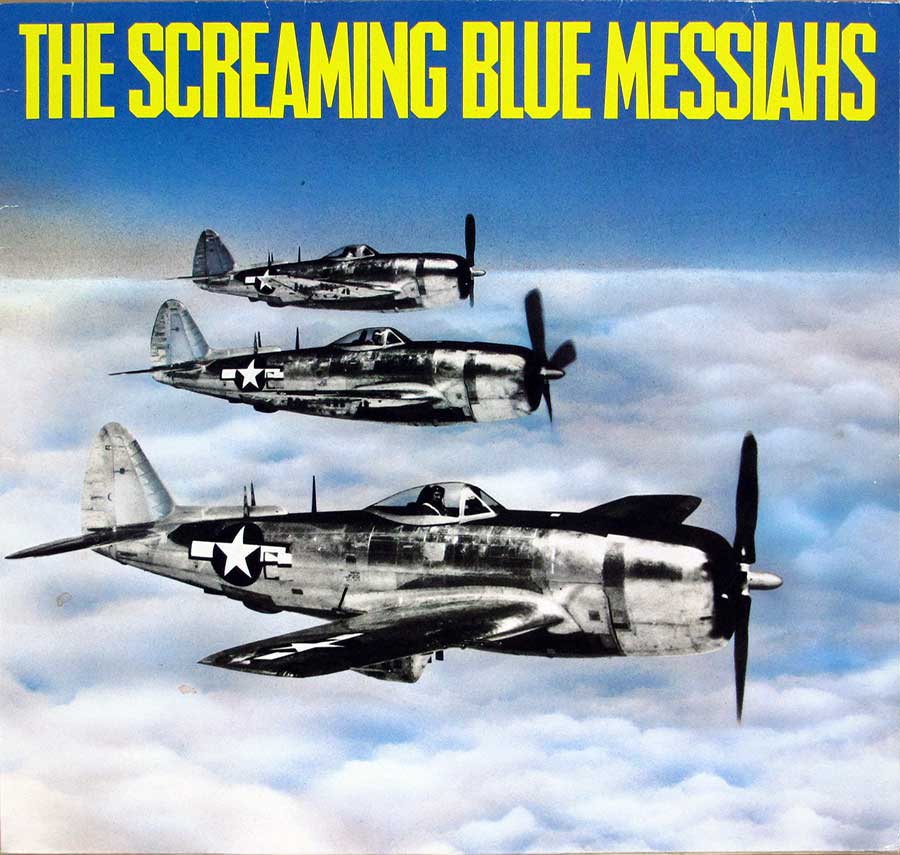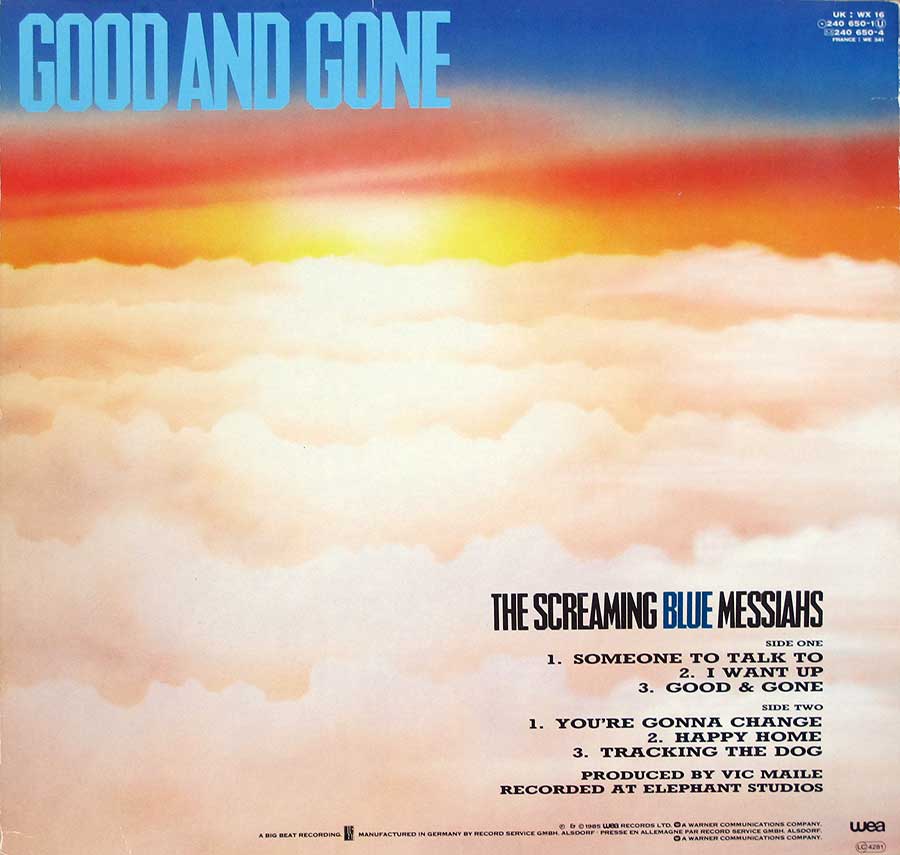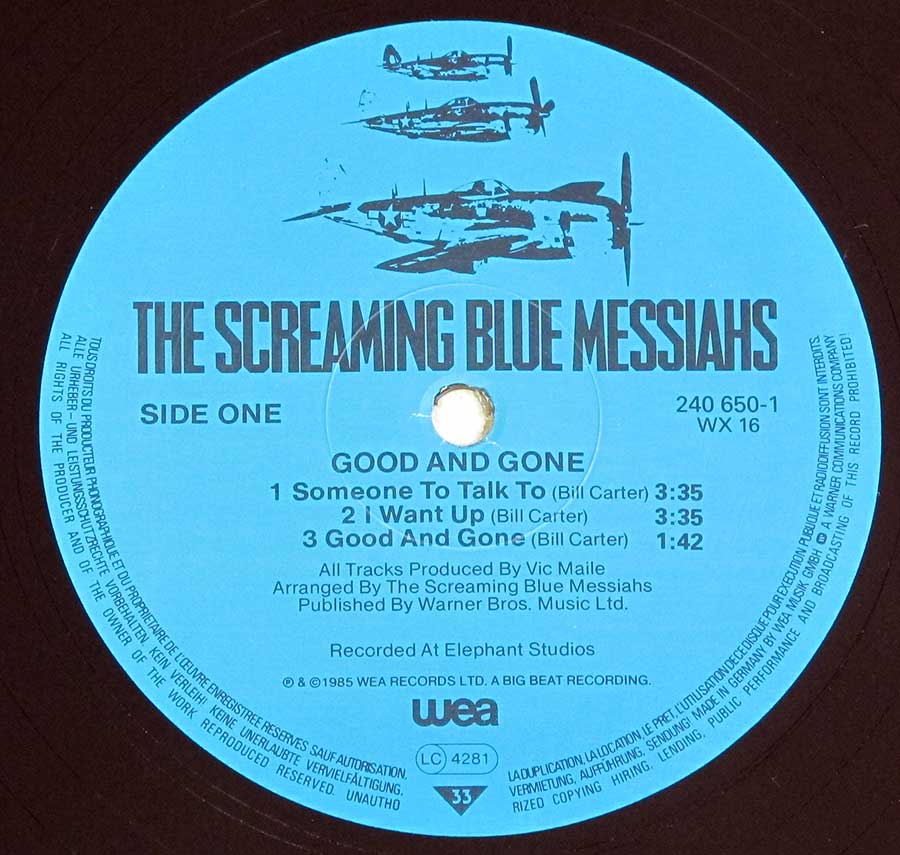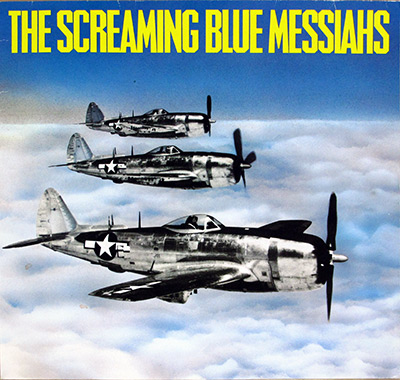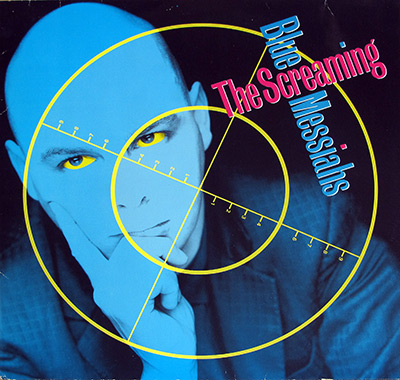Emerging from the vibrant UK music scene of the mid-1980s, The Screaming Blue Messiahs unleashed their debut mini-album "Good and Gone." The album arrived at a time when post-punk was evolving, and bands were experimenting with various genres, incorporating elements of rockabilly, blues, and country into their sound.
Historical Context:
"Good and Gone" was released in 1984, a period when the UK music landscape was teeming with creativity. The post-punk movement had given way to a diverse array of sounds, ranging from the new wave pop of Duran Duran to the gothic rock of The Cure. The Screaming Blue Messiahs found their niche by blending punk energy with rockabilly swagger, creating a unique sound that resonated with audiences hungry for something different.
Musical Exploration:
The album's title track, "Good and Gone," is a fast-paced, energetic rocker with a catchy chorus and a driving rhythm section. Other standout tracks include "Someone to Talk To" and "I Want Up," which showcase the band's ability to blend punk aggression with rockabilly twang. The band's musical exploration on "Good and Gone" set the stage for their later, more refined albums.
Controversies:
The Screaming Blue Messiahs' music was not overtly controversial, but their raw, unpolished sound and energetic live performances sometimes clashed with the more polished, mainstream acts of the time. This, however, only served to enhance their appeal among fans who craved authenticity and energy.
Production Team and Studio:
"Good and Gone" was produced by Vic Maile, a seasoned producer who had worked with artists like Jimi Hendrix, Led Zeppelin, and The Kinks. The album was recorded at Elephant Studios in London, a renowned recording facility that had hosted countless legendary artists. Maile's experience and the studio's state-of-the-art equipment helped to capture the band's raw energy and translate it onto tape.
